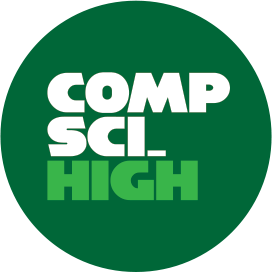Our model was developed to answer a single question: what high school experience will lead our students to a fulfilling, family-sustaining career.
Our model is designed to prepare 100% of students for college. To achieve our mission, every student will need to continue his or her education beyond high school, in some form. And, for most students, that means completing a four-year college degree. But we view college primarily as a means to the end of economic freedom, and not an end in itself. We are determined to avoid the mistaken assumption that we can fulfill our promise to families by merely sending 100% of our students to college.
We intend to send them to college armed with strong academic and social skills, marketable tech skills and certifications, and real work experience. We believe (and research supports) that this is the recipe for college persistence and long-term success.
How will we build all these skills? We answer that question in two different ways.
What We Teach
We designed our curriculum to explicitly teach and assess four kinds of skills and knowledge:
Academic skills, in Math, Science, History, Literature, Writing, Computer Science, and the Arts,
Computational thinking skills that give students a set of tools and habits that will allow them to solve problems,
Professional skills that prepare students to interpret, adapt to, and navigate different professional settings, and
The personal mindsets and values that lead to post-secondary success.
How We Teach
We know from experience that a school’s methods of instruction, assessment, and relationship-building are often more important than its curriculum Students learn only to the degree they are interested and motivated, and only if they feel safe and respected. We believe the following methods of instruction, assessment, and culture-building will create the engaged, motivated, and supportive environment where our students can flourish:
Hands-on, inquiry-based learning that minimizes lecture and forces students to think,
Performance-based assessment paired with traditional tests and mastery-based grading, to ensure a complete view of what kids know,
Personalized intervention, so every student gets the support he or she needs to access the curriculum and experience success,
Work-based learning that allows students to regularly learn from industry professionals, both during school and beyond the school building/day, and
Restorative practices, that use instances of disrespect or disruption as opportunities to teach and build community, instead of purely to punish.

